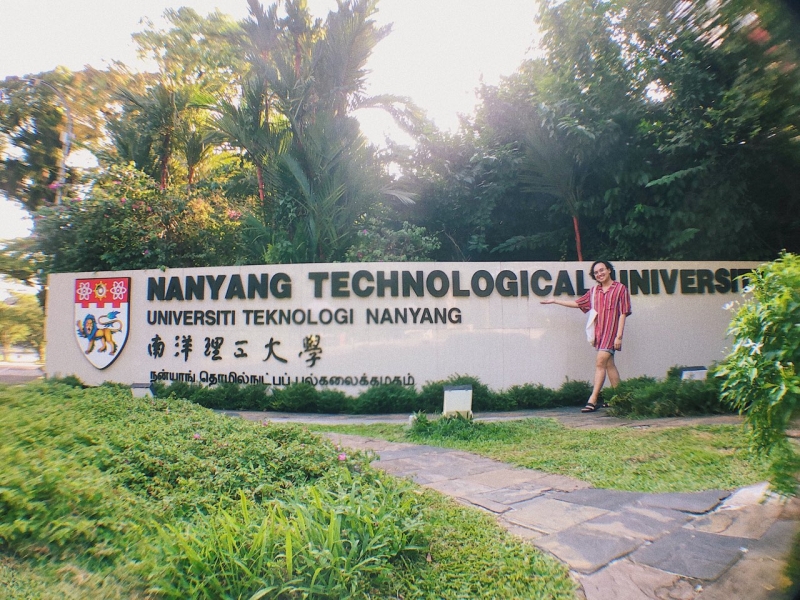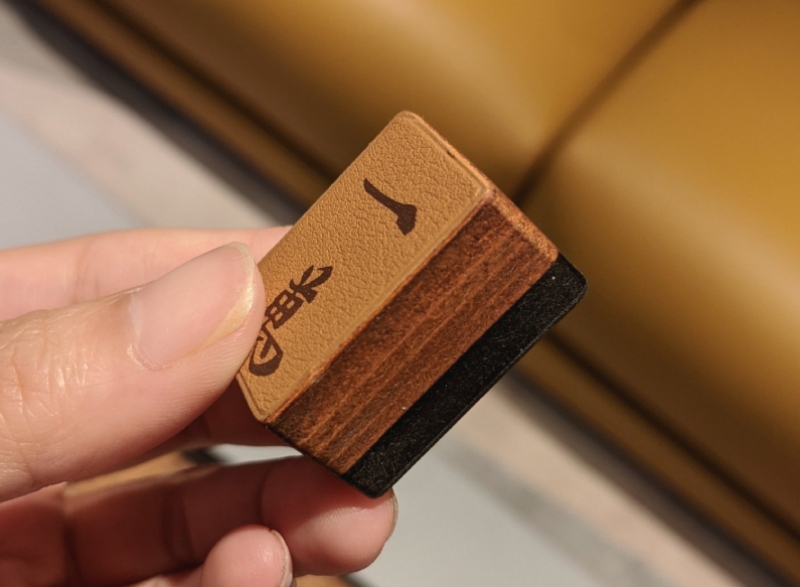Chinoy Shares His Experience Of Studying Abroad

Perhaps at least once in our lifetime, studying abroad has crossed our minds. The thrill of being able to live in a different country, taking in their culture and learning new things everyday can be such a dream. Not only can it vamp up your resume, but it can also teach you things you won’t be able to in the confines of your home country.
For Almon Yu Opiniano, a Communication Arts and Advertising Management graduate from De La Salle University-Manila, his aspirations in pursuing his graduate studies abroad just recently came to life. After a year in Singapore, he finally earned his Master’s degree in Mass Communication in Nanyang Technological University. Read on as he shares how it’s like studying in The Lion City.
1. What’s the story behind pursuing your Master’s degree abroad?
⁃ I’ve always wanted to take my Masters degree since I was an undergraduate, the only question was when. I chose my school because I had a batchmate who took the same program years ago so I thought, “If he can do it, I can do it too.” The university was also a reputable one in the communication field so it was an added bonus to my list of reasons.
2. How was the application process for your preferred university?
⁃ The process was very simple, actually. The university didn’t require physical applications so the digital application was a breeze. The real work was gathering and completing all the necessary paperwork to be submitted for the application such as transcripts, letters, etc. Different programs have different requirements, but my program had simpler requirements. Once the application was submitted, I just had to wait for my results. I heard some applications would still require an interview prior to acceptance, but that wasn’t the case for me or anyone I know of.
3. Upon your acceptance, what preparations did you have to do before you left the country?
⁃ My first step was to actually ask my friend who previously studied there. He gave a lot of tips, but his style was very much “you need x, then you’ll find out what to do next.” He wasn’t spoon feeding all the tips to me, which I appreciated since I could learn the ropes mostly by myself. Another major preparation I did was planning my living setting as well, and what items to bring in from here back home and then to Singapore–may it be personal items, or household items. I had to consider whether it would be worth it to buy the item instead or bring along some from home. Other than that, I had to prepare personal documents just in case. I didn’t really use them eventually, but it was a good thing to keep on hand.
4. How were you able to adjust to the new environment?
⁃ It was a big consideration for me to choose an Asian country for my Masters because the culture and setting is very much familiar. It also helps that I’ve visited Singapore several times in the past before I eventually studied there. It’s not really difficult to adjust, but for me it was more of having to catch up with the fast-paced lifestyle of the country: I had to rush a bit more to bus or train stops because I didn’t want to miss my ride, or I used contactless payments more because that’s more convenient and very much faster that using cash. Culture-wise, it wasn’t that much of a large adjustment as there are a lot of similar values that Filipinos and Singaporeans value. Their culture is really intertwined with their family values and the country itself, so as the country progresses -so do their cultural values to some extent.
5. What challenges did you face during your term abroad?
⁃ Money was my main challenge, of course. Everything is much more expensive there, but you just have to adjust. Diskarte is really important in making wiser financial decisions from day to day spending, such as food, transportation, etc. Another challenge is that it gets very lonely sometimes. I personally like alone time, but you need some social interactions once in a while. A lot of my friends were people I met in the university, especially since the university is really far from the central area. But it’s enough for me. Academically, it wasn’t too difficult for me because I actually like what I’m learning so it was a good challenge to take up. With the university being a reputable research university, the pressure to really do a good job in your small research projects is there. But that’s the liberty that the Masters program offers–you get to research things that you are genuinely interested in within a certain broad topic.
6. What are your takeaways or learnings after a year of studying abroad?
⁃ A key takeaway for me is you really have to adjust your mindset when you’re studying [and living] abroad. If your mindset is set to “adjust, survive, enjoy” or something similar, it becomes a breeze. I have met people who didn’t like their program, or didn’t like the feeling of living in the country, etc. But I always believe that if they have the right positive mindset to go through the process, they can always find the good things to give them benefit during their studies abroad. Another learning is to embrace the changes that living abroad can bring. This is because I know of some people who were so timid and lowkey resisted the changes that living abroad brought about and so they couldn’t really enjoy or explore too much.
7. What advice can you give to Chinoys planning to study abroad?
⁃ Remember the reason that you studied abroad, because sometimes you will really question yourself asking “What am I doing here, and why?” Half-hearted reasons may hinder you from actually fulfilling some things that you want to achieve from the experience. If your reason to pursue higher education is really a strong one–just try to apply, push through and hope for the best.

